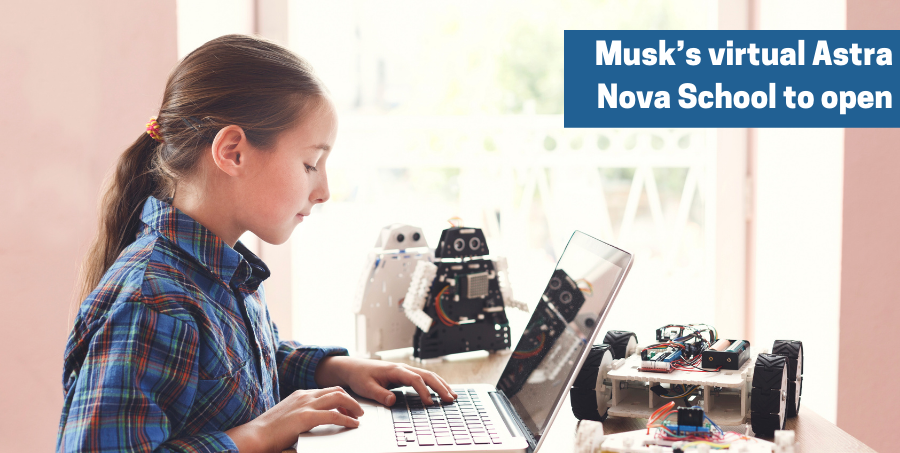Elon Musk’s virtual Astra Nova School set to open doors in September

During the lockdown period, when the coronavirus prompted governments in many countries to adopt the UK’s strategy of closing schools and effectively suspending children’s education, a ‘novel solution’ to that particular predicament was unfolding in the US: a new fee-paying online school.
The new ‘Astra Nova School’ will open its virtual doors in the US as Britain reopens the real doors of its schools in September. The brainchild of tech billionaire Elon Musk, the elite school will operate out of his SpaceX rocket factory – just like an earlier academy that he created, which was similarly ‘uber-exclusive’.
The new school will be staffed by many of those who taught at Musk’s previous online school, which began educating a select cohort of children in 2016. Musk’s own children were among the small group, as were a number of those whose parents were SpaceX employees.
No fees were charged for these original students, though they pursued a curriculum skewed to Musk’s primary interests. Absent from that curriculum were any sports, music or language lessons, but there were plenty of complex projects for the students to get their academic teeth stuck into.
Projects included building battling robots, planning how to vanquish malevolent AIs, and discussing nuclear politics.
This original online experiment was followed by a broader project encompassing gifted students drawn from beyond Musk’s family and employees (applications were received from 400 families).
Astra Nova’s criteria extend to children in any country, provided that the youngsters are “kind, motivated and academically serious” – and, of course, have parents prosperous enough to foot the fees: $7,500 for one day a week of online lessons.
Speaking to the US news outlet The Daily Beast, Astra Nova’s principal Joshua Dahn said: “Elon helped with an initial donation and some basic administrative assistance to get Astra Nova started. But Elon has no financial interest in the school and no kids at the school.”
Musk may not have a financial interest in the school, but a glimpse at its curriculum reveals that he certainly has an intellectual one. It will allow children as young as eight to begin learning about bioethics or 3D printing in the morning, while in the afternoon, they will turn their minds to subjects such as rocketry, virtual reality and law. The courses have at their core a collaborative approach to problem-solving via in-depth games and simulations.
The billionaire has come under fire from some educationalists for failing to assist disadvantaged communities with his new virtual academy. However, it appears that Musk is seeking to foster excellence rather than social egalitarianism, and sees this as one innovative way of pursuing that goal.
Dahn said that although the new school, unlike its predecessors, is set up as a conventional for-profit business, it will be funded principally from tuition fees and will not aim to make a profit. Fees will be variable and will depend on the wealth and income of each child’s parents.
The school requires a high degree of personal motivation and a strong aptitude for independent working, as students will be expected to put in many hours of their own once they have left the virtual classroom for the day.
However, Musk seems to be on to something inestimably valuable here, which schools catering for disadvantaged communities could seek to emulate: technology is accelerating in complexity and audacity at a dizzying pace in the contemporary era, and those who begin to grasp its essentials early in life may well stand a much better chance, not only of understanding its benefits, but also of obtaining meaningful employment in the new, high-skilled workforce it will require.

